August 14, 2022
Associated Press
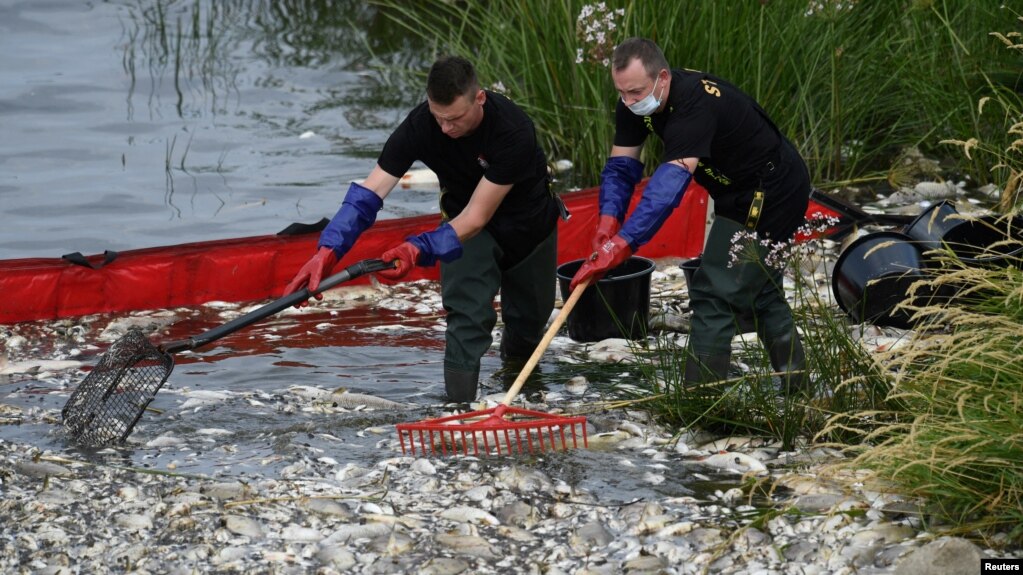
Dead fishes are removed by a worker of the emergency services of the voluntary water rescue organisation, German Life Saving Association (DLRG) from the Oder river on the German-Polish border, as water contamination is believed to be the cause of a mass fish die-off, in Frankfurt (Oder), Germany August 14, 2022.
WARSAW —
Germany's environment minister said the mass die-off of fish in the Oder River is an ecological catastrophe and it isn't clear yet how long it will take for the river to recover.
Steffi Lemke spoke Sunday at a news conference alongside her Polish counterpart, Anna Moskwa, after a meeting in Szczecin, a Polish city on the Oder River.
The Oder runs from the Czech Republic to the border between Poland and Germany before flowing into the Baltic Sea. Ten tons of dead fish were removed from it last week, but Moskwa said the cause of the mass die-off still has not yet been determined.
"So far, at least 150 samples of water from the Oder River have been tested. None of the studies have confirmed the presence of toxic substances. At the same time, we are testing fish. No mercury or other heavy metals have been found in them," she said.
She said some Oder water samples were being sent to foreign laboratories to be tested for about 300 substances.
Both ministers said they were focused now on doing what they can to limit the damage to the river's ecosystem.
Lemke suggested that German authorities were not alerted quickly enough after dead fish were detected in Poland and said communications between the two countries should be improved.
Poland says Oder tests so far not showing poison as cause of fish die-off
Reuters
August 14, 2022
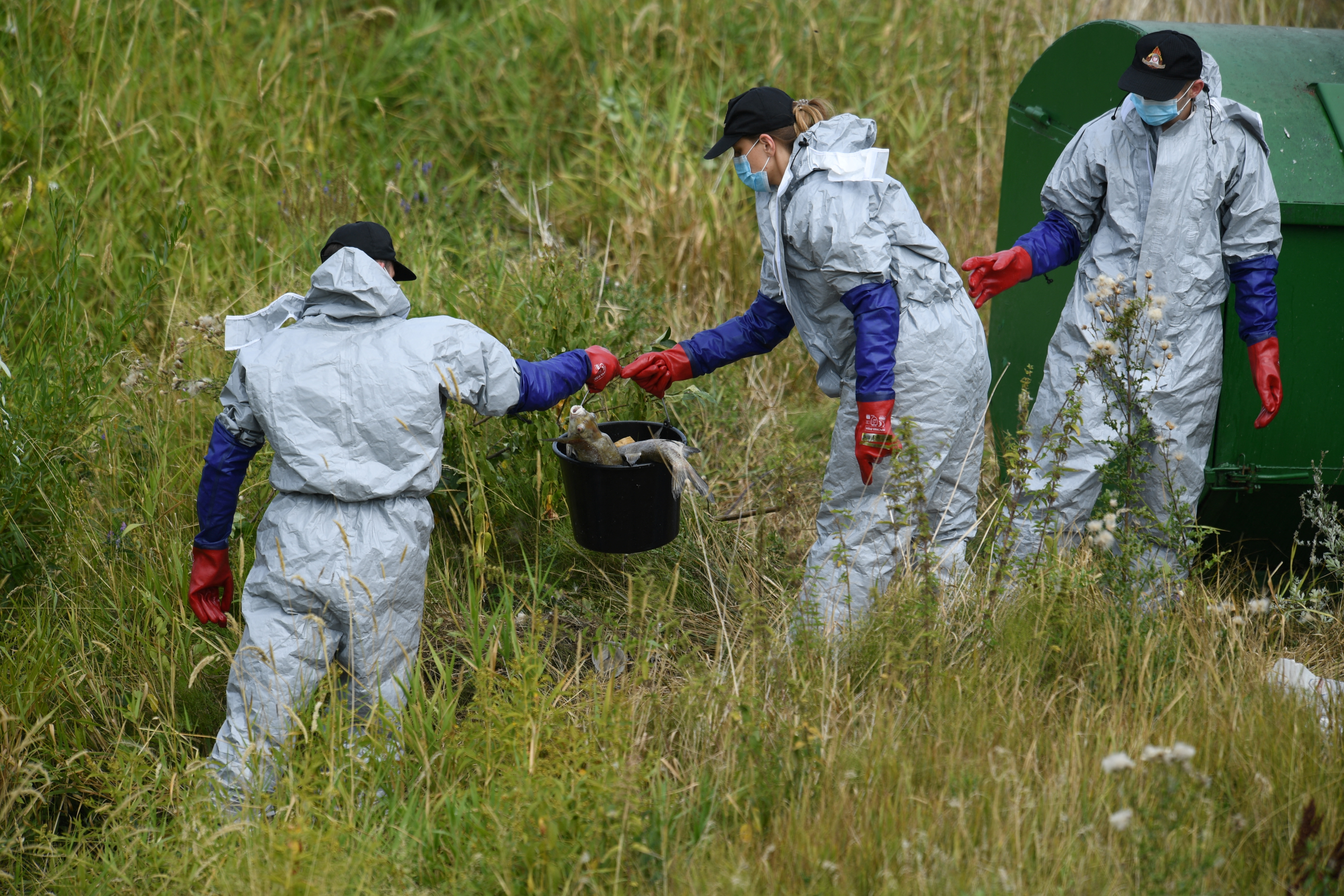
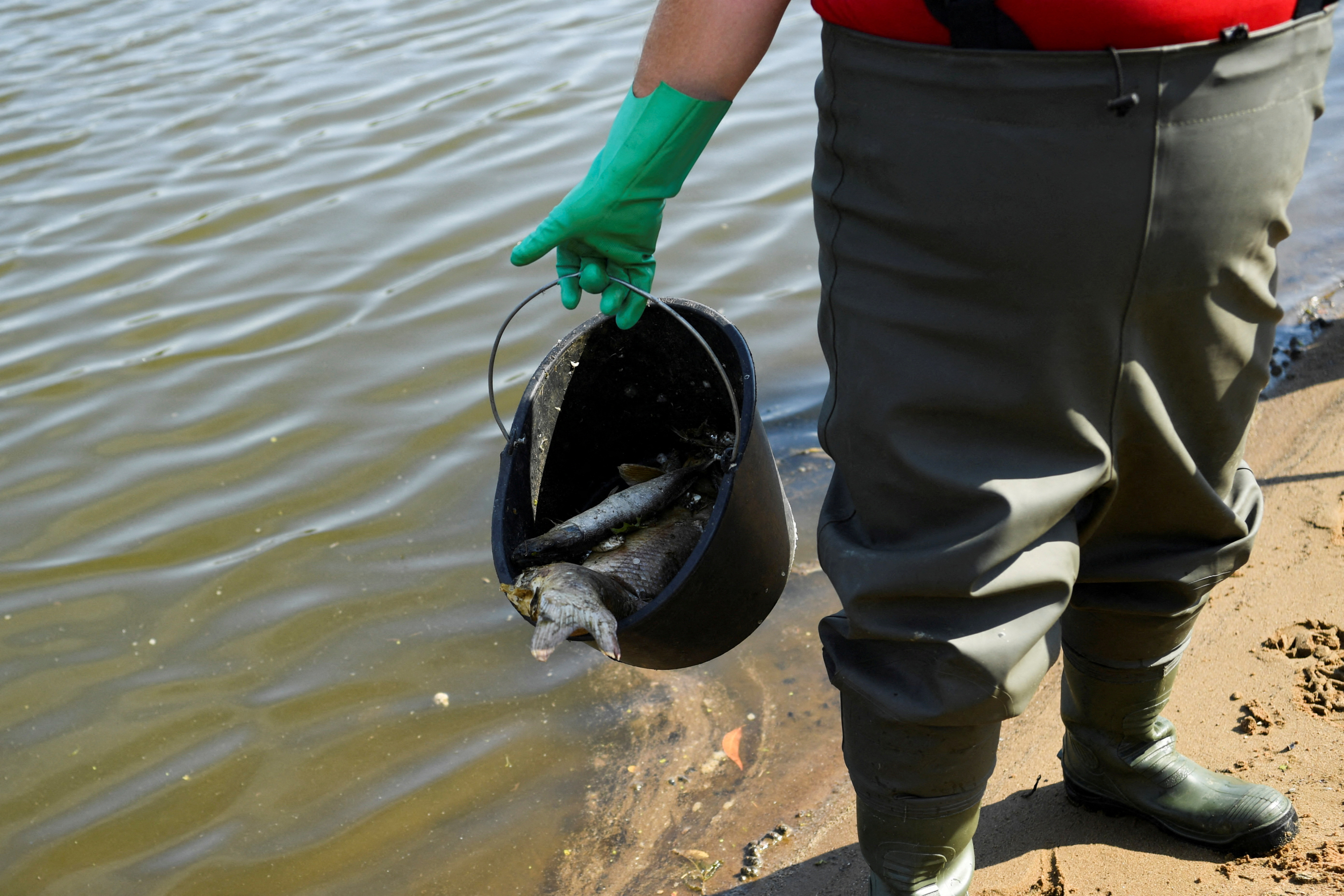
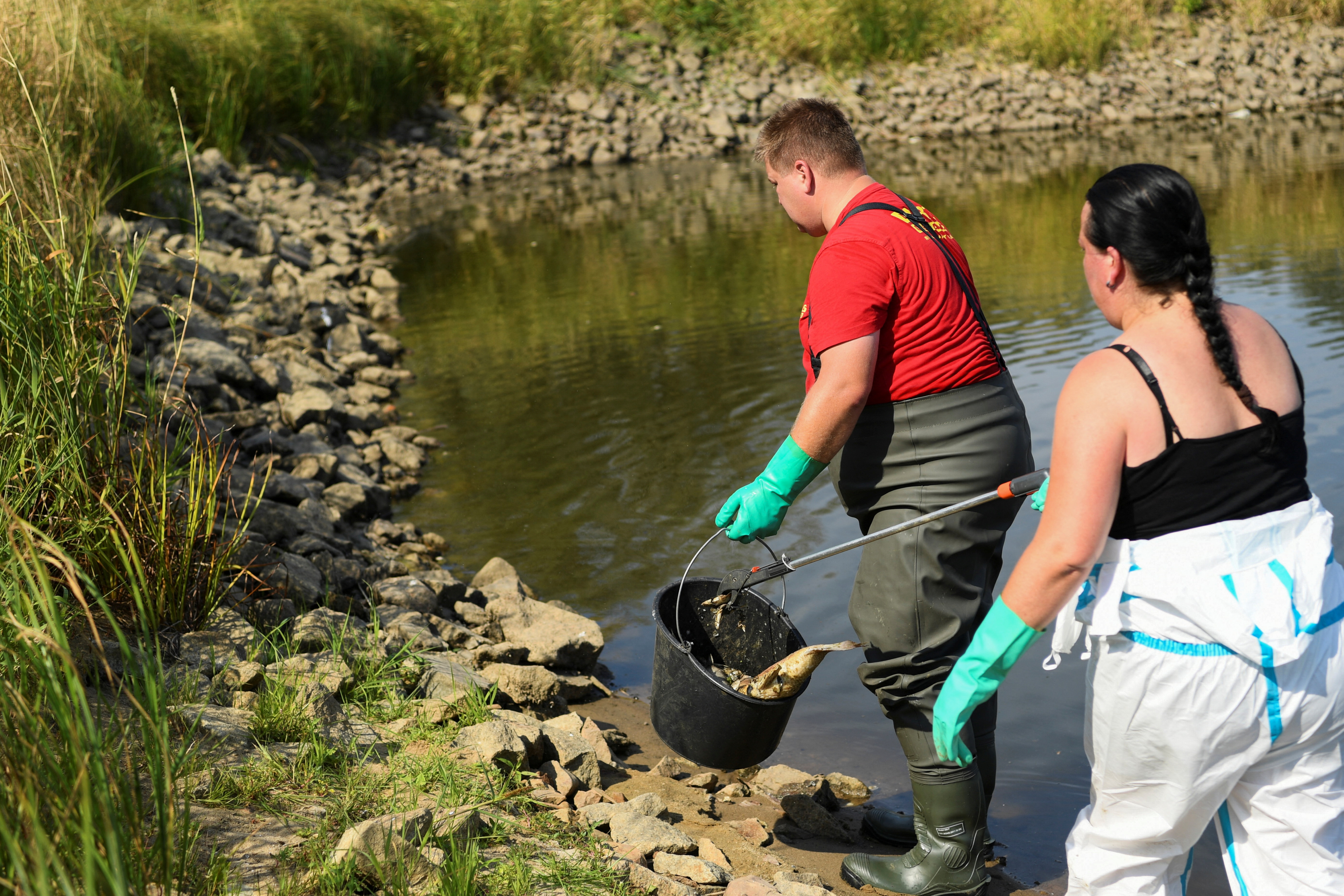
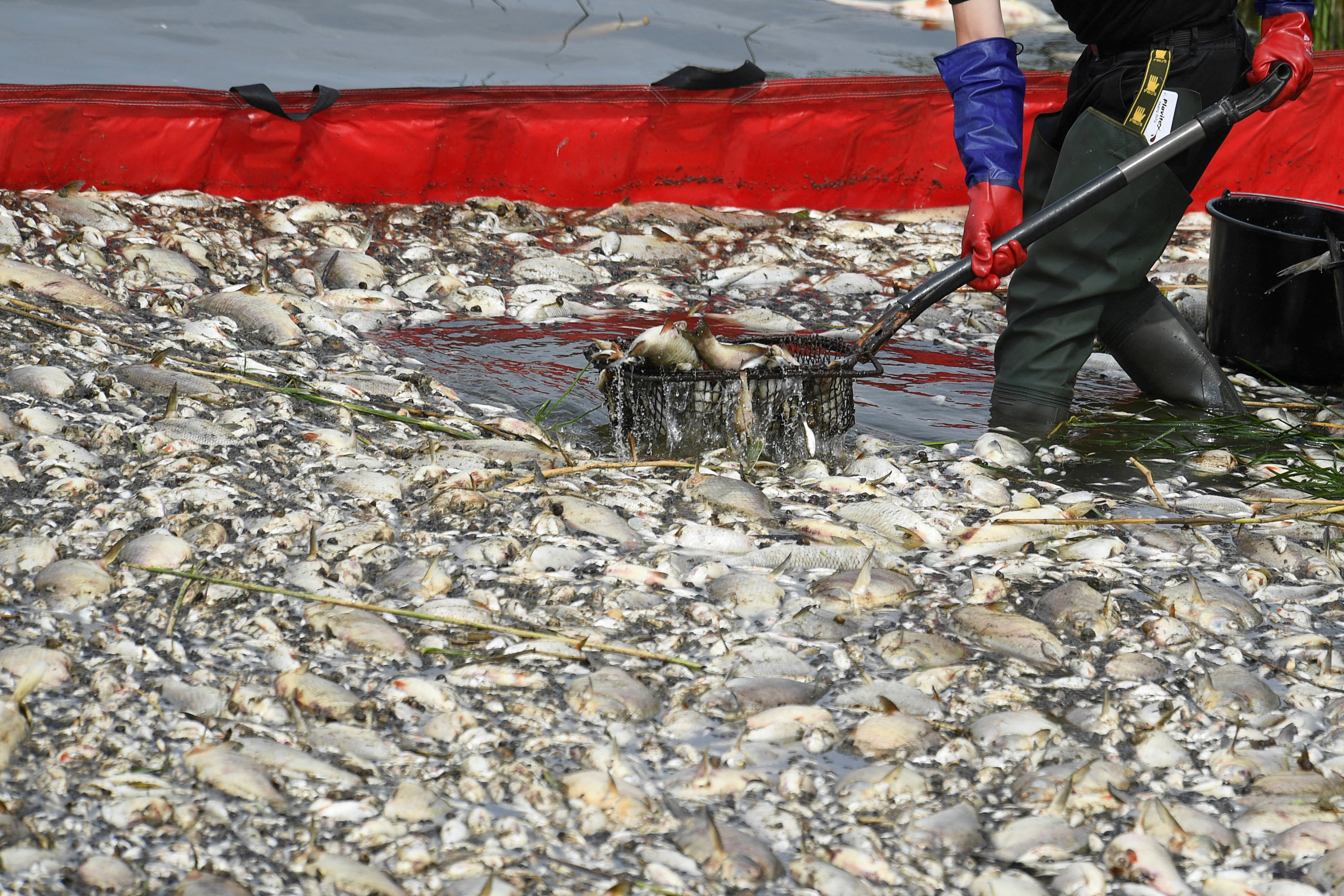
Reuters
August 14, 2022




REUTERS/Annegret Hilse/File Photo
WARSAW, Aug 14 (Reuters) - Poison cannot be ruled out as the cause of a mass die-off of fish in the Oder river but tests so far have not proven toxic substances were to blame, Polish Environment Minister Anna Moskwa said on Sunday.
Tonnes of dead fish have been found since late July in the river Oder, which runs through Germany and Poland. Both countries have said they believe a toxic substance is to blame, but have yet to identify what it is.
"As of today, none of these (water) tests have confirmed the presence of toxic substances," Moskwa said after meeting with her German counterpart and other German and Polish officials.
"At the same time, we are conducting tests on fish. We have completed fish tests for mercury and heavy metals. Neither mercury nor heavy metals were found in the collected samples," she added.
Moskwa said samples are now being tested for the presence of pesticides and around 300 more substances will be checked for in the coming hours.
"We still do not exclude a variant of the toxic substances...so we are interested in the prompt identification of the perpetrator... We are checking entities which run business and industrial activity along the river," Moskwa added.
The German and Polish governments have said the mass die-off is a major environmental catastrophe and the waterway could take years to return to normal.
Reporting by Anna Koper, writing by Jan Lopatka and Anna Koper, editing by Alexander Smith and Hugh Lawson
WARSAW, Aug 14 (Reuters) - Poison cannot be ruled out as the cause of a mass die-off of fish in the Oder river but tests so far have not proven toxic substances were to blame, Polish Environment Minister Anna Moskwa said on Sunday.
Tonnes of dead fish have been found since late July in the river Oder, which runs through Germany and Poland. Both countries have said they believe a toxic substance is to blame, but have yet to identify what it is.
"As of today, none of these (water) tests have confirmed the presence of toxic substances," Moskwa said after meeting with her German counterpart and other German and Polish officials.
"At the same time, we are conducting tests on fish. We have completed fish tests for mercury and heavy metals. Neither mercury nor heavy metals were found in the collected samples," she added.
Moskwa said samples are now being tested for the presence of pesticides and around 300 more substances will be checked for in the coming hours.
"We still do not exclude a variant of the toxic substances...so we are interested in the prompt identification of the perpetrator... We are checking entities which run business and industrial activity along the river," Moskwa added.
The German and Polish governments have said the mass die-off is a major environmental catastrophe and the waterway could take years to return to normal.
Reporting by Anna Koper, writing by Jan Lopatka and Anna Koper, editing by Alexander Smith and Hugh Lawson
No comments:
Post a Comment